The conversion from ownership to taxi hiring services is gaining ground.
 Siddhartha Pahwa, chief executive officer, Meru Cabs, shares an interesting bit of data.
Siddhartha Pahwa, chief executive officer, Meru Cabs, shares an interesting bit of data.
Three years ago, when they did a survey of radio taxi users and asked people if they'd substitute personal cars with such a service, only 10 per cent said they might 'consider' the option. None said they were ready for it.
When the same survey was done four months back, 25 per cent said they were willing to 'consider'. About 10 per cent said they used radio taxis regularly and didn't own a car. The conversion from ownership to taxi hiring services is gaining ground.
Rajesh Thakur, a Mumbai-based entrepreneur, barely uses his car anymore.

"Driving through the mad traffic during peak hours and hunting for parking was a major problem. I now use Ola or Uber. Only on days when I have a lot of meetings do I take the car and with a driver on hire for the day," he says.
Rahul Porwal, deputy manager with a private company, says using the new-age taxi service also allows him and his colleagues to split the bill easily when they use it together. Porwal now uses his car only on weekends, for shopping and dining.
For someone who has a meeting only once or twice a week, this is a good arrangement. The cost of a 16-km travel from home to office is Rs 300. In comparison, having a monthly driver, petrol/diesel bills and the harrowing experience of dodging bikers and long waits during peak hours can drain a person financially and emotionally.
Buying a car vs hiring a car: How costs work out
The best part: you can travel with a few friends at least on two or three days. This brings down outgo even further.
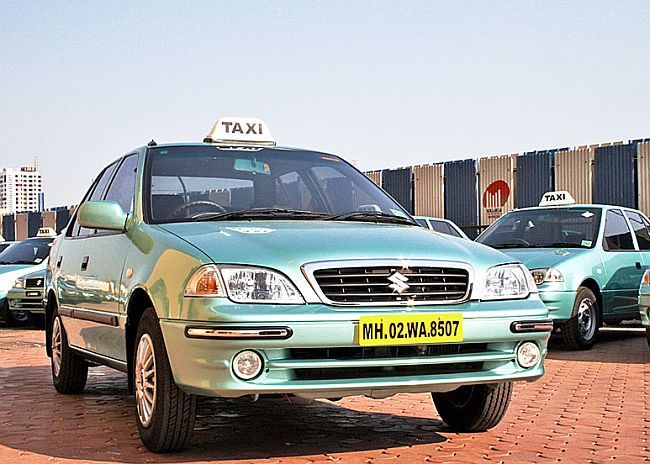
"A person will not need a car only when the experience is replicated," says Anand Subramanian, senior director, marketing communications, at Ola. The app-based process takes care of it. A person can get the car when he wants, where he wants and does not need to tell the driver where to go.
Says Vishnu Mathur, director-general at the Society of Indian Automobile Manufacturers: "There are two factors to personal transport - aspiration of ownership and need. In my opinion, the utilisation of personal cars would come down due to these taxi services."
Pahwa of Meru Cabs feels as the penetration of personal cars in India is only seven to eight per cent, compared to 35-40 per cent in Western countries, we need many more vehicles to service the population's growing travel needs.
"Whether cars are utilised by the taxi hailing app companies or by individuals, more of these are required."
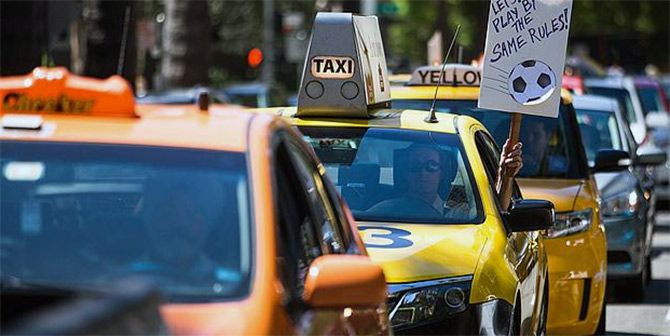
So, should you buy that car, especially if you are not planning to use it for a lot of travel?
Take a cue from the calculations laid out. For simplicity, a small petrol car costing Rs 6.5 lakh has been considered for comparison with Uber and Ola's basic services (see table).
Also, since both these car services seek 1.5x (or 50 per cent more) during peak hours, the calculation has been done, based on using the peak time service 40 per cent of the time.
How much will you travel a day? If you travel 25 km a day, buying a car would really not make much sense. As you see from the table, compiled by EY, an Uber is cheaper at Rs 420 a day. Buying the car does not make sense even if you are driving it yourself.
However, the numbers look favourable towards buying as the number of km increases.
If travelling 75 km daily, owning a car makes sense. But, remember, you need to drive the car. If travelling more than 75 km a day, go ahead and purchase it.
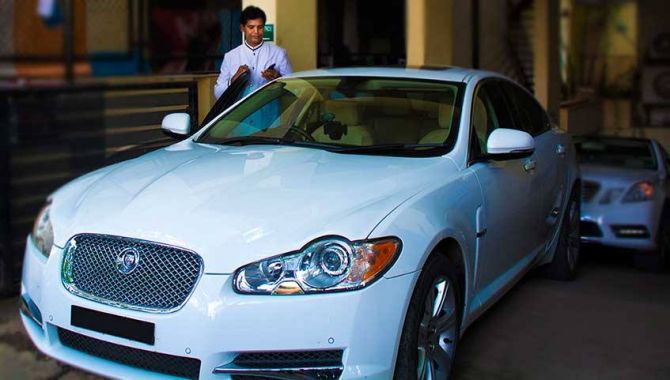 Will you use a driver? A critical question because it can change the dynamics. Assuming the driver's wages to be Rs 12,000 a month, for someone travelling 25 km a day, the cost of running the car is a whopping Rs 1,026 daily.
Will you use a driver? A critical question because it can change the dynamics. Assuming the driver's wages to be Rs 12,000 a month, for someone travelling 25 km a day, the cost of running the car is a whopping Rs 1,026 daily.
The difference in cost between a driver and self-driven car is Rs 500 a day when travelling only 25 km. The utility of a driver really becomes important once the travel distances become higher.
Are you taking the car on a loan? Another important factor, as it will increase the cost of ownership.
As it is a five-year loan at an interest rate of 11 per cent a year, the impact is Rs 377 a day. This amount, added to driver cost, maintenance, insurance, etc, is a heavy drag, especially if travelling 25 km or less a day.
But taxi-hailing services have a long way to go."One taxi can serve the needs of about five families. There are about a million taxis. Of these, only five per cent is in the organised space. Even if all of these are organised, the taxi industry will be able to serve five million households. In India, there are 30 million households that need good quality transportation solutions," adds Pahwa.
The bottom line: If you are an infrequent user or travel with colleagues, it could make more sense to use these services. But, owning a car has its own charm and convenience.
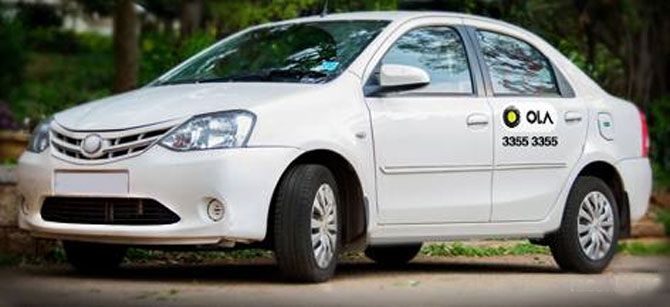 Ownership vs access: Changing paradigm for urban mobility
Ownership vs access: Changing paradigm for urban mobility
Anil Valsan
Director - Global Automotive Practice, EY
The exponential rise in cities' cost of living has made car ownership and maintenance more expensive.
At the same time, congestion is draining the fun out of driving and creating a demand for mobility services.
Consequently, the market has seen proliferation of technology-intensive business models such as Uber and Ola. Their value proposition includes easier access to vehicles, real-time booking process, digital payment options, and usage-based pricing model (per minute/kilometre).
These companies are aiming to change the economics of private vehicle ownership (expected to impact the entry- level car and two-wheeler segments) in metros.
A cost comparison reveals these technology-intensive, short-term-hire companies are a cost-effective option, depending on the distances travelled.
However, the current models in India have a different market positioning compared to developed markets.
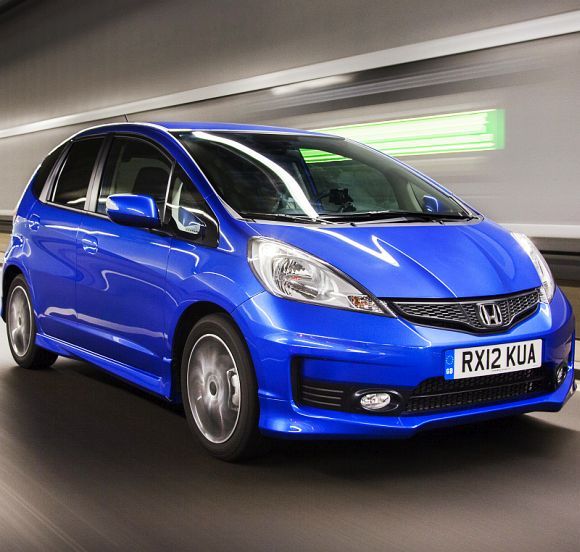
In particular, they are positioned as more of an alternative to the taxi and other shared transport options, rather than peer-to-peer sharing.
In addition, these companies (Uber, Ola, etc) need to provide vehicles to potential drivers, unlike other markets where drivers use their own vehicles.
Vehicle ownership remains a powerful status symbol in India, with the expanding middle-class fuelling a rise in consumer aspirations.
Further, ownership also allows the flexibility of vehicle access during emergencies or weekend getaways. These benefits are likely to drive demand for ownership but the concept of access to mobility is fast catching up.
So, automakers need to prepare a shift from a product mindset to a service mindset, to better align with customers.






